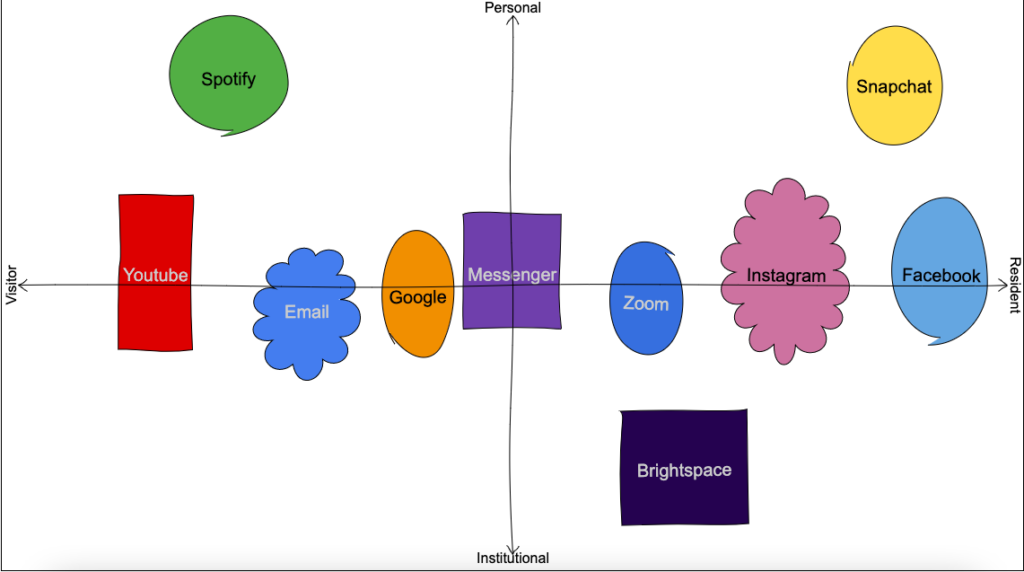I think a person’s network can be a mix of personal and professional connections. Largely due to the increasing accessibility of Internet spaces, the line between our public and private lives, and thus between our personal and professional lives, has become blurred. My experiences have led me to believe that the more connections we have, the more opportunities we must learn. I have spent the last few years bouncing from program to program, meeting a variety of personalities with different skills and knowledge. I am also part of the French-speaking community in the Lekwungen area, which includes an extremely diverse group of people. Due to the colonization of countries by the French, many communities around the world speak this language and have adopted it as their own. Over the past year, due to the move online, I have become a more active participant in the community. I worked on a project to collect the stories and memories of Francophones in British Columbia during the early months of the pandemic. This process allowed me to make new connections with members of my community and to discover the different points of view that can be expressed by a single group of people.
I believe it is important to learn as much as possible every day, whether it is for personal or professional development. I like to say that my profession is education and being a student because for the past five years my life has been focused on academia and my personal growth in my field of study. My mentors are my professors and graduate students in my department who often allow me to ask them questions about their studies. While I appreciate them humoring me and asking me questions about my research, I mostly learn from their feedback and insights. I have a severe case of impostor syndrome that makes me feel like I have nothing to bring to the table since I am usually the least educated person in the room. At my academic level, my classmates and I are beginning to research and consider our honors or master’s theses. By discussing their chosen topics, I have learned a lot about them and their perspectives.
As a humanities student, my program allows me to reach beyond my department and make connections on a personal and professional level. Mostly, though, I share information and knowledge with people in my immediate department. My classmates and I have created a network that we use to share class-specific knowledge and useful materials. However, because I lived in dorms as a first year, I have many personal contacts with people from all kinds of programs. Often, we help each other by reviewing each other’s work or sharing a class reading that might be useful or interesting in their study setting. In some ways, perhaps, I participate in a silo of information, but in other ways, I actively seek out knowledge that is foreign to me to expand my horizons.
I plan to become a high school French teacher, which I believe requires inclusiveness. I have taken EDCI courses in the past that have allowed me to examine the curriculum and expectations for students in this province. My favorite resource is the First Peoples Principles of Learning (FPPL), which is emphasized in the redesigned BC curriculum. They explain the First Nations approach to learning, which is to support, engage, recognize, and integrate knowledge. I know I have years to go before I am a teacher, but ideally, the FPPL would be at the forefront of my teaching methodology. In a classroom setting, inclusion means addressing the diversity of the student group. In this sense, I believe that inclusion is actively embraced because teachers are building a network that is dynamic and makes room for new methods that could enhance the educational setting in which we expect our students to thrive.

Recent Comments